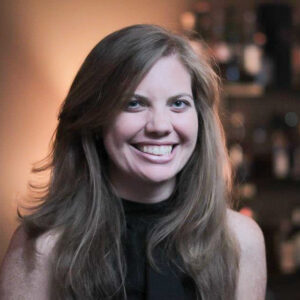The following is an interview with DIFW Board Member Dr. Bob Cutillo in partnership with Every Square Inch, the faith and work initiative of The Gospel Coalition. Dr. Cutillo was featured in a weekly column which asks practitioners about their jobs and how they integrate their faith and work. The original post can be found here.
Dr. Robert "Bob" Cutillo lives with his family in Denver, Colorado, where he practices medicine at the Inner City Health Center and the Colorado Coalition for the Homeless, teaches at Denver Seminary, and contributes to various medical journals.
How did you decide to become a family practice doctor?
I graduated from Columbia University College of Physicians and Surgeons in 1981. Since elite institutions like Columbia tend to value specialized practices more than generalized ones, many of my advisers encouraged me to practice specialty medicine. When I went to India on a fourth-year medical clerkship, I was planning on becoming an infectious-disease specialist. In India, however, I sensed that God was calling me to serve populations in need—populations that are better served by doctors with broad skill sets, not narrow ones. So I decided to be a family practice doctor.
What has been your biggest professional challenge?
Medicine is a powerful industry that has become increasingly successful in its ability to deal with sickness and death. This, however, has come at a cost—the disintegration of the person. The medical field wants to dissect people into their component parts. In this model, the patient is the object, and the doctor is the subject.
One of my patients, for example, was pregnant with a fetus diagnosed with a chromosomal abnormality, and all of her doctors told her to have an abortion. They were operating under a reductionist model, separating her life from the life of her baby and her faith. She came to me, and I listened to her. She kept saying, "The baby was given to me by God. How can I abort it?" When the baby was born, she was given a name and baptized. In a few hours, as expected, the baby died. Her parents mourned deeply, but in a way that was possible only because they loved deeply.
When I study the healings of Jesus, I see an alternative to the medical model. He saw people as whole people, physically and spiritually. They were made in his image, and their sicknesses caused him pain. As a doctor, I know this is how my patients want me to see them. They are not objects, but subjects. They are not problems to be solved, but people who can act on me as much as I can act on them. There is reciprocity of relationship. I have to be willing to build relationships with them.
What is the risk of practicing medicine relationally?
The biggest risk is the loss of objectivity. This is what medical students are cautioned against repeatedly. Yes, a doctor can get too emotionally involved and compromise his or her practice, but the pendulum has swung too far. New doctors now spend about 10 percent of their time with patients. Not only does this shift affect patient satisfaction, but it also causes outcomes to suffer. For me, the risk of losing objectivity is worth taking because listening to my patients and desiring to see them as God sees them makes me a better doctor.
How do you counsel patients who may be tempted to see medicine as a kind of salvation?
Medicine practices what I call the "Devil's Doctrine"—if something can be done, it must be done. What can be done, however, may not be ethical, wise, or best for the patient. Patients are not "biological units," as one economist recently described them. What's best for them is not determined in abstract, but in relationship. They're also not "clients" or "customers." The doctor-patient relationship is not fundamentally contractual. For example, patients sometimes expect medication to stop their pain immediately and completely, but I have to think about the risk of addiction and what's best for their prospects for long-term healing.
What counter-cultural practices have you adopted in your practice of medicine?
I've learned from both my patients and also my colleagues that there's no such thing as an individual pursuit of health. My patients have taught me that we can only be healthy in relationships. Doing group visits has given me the opportunity to see them help each other in ways that I can't. Also, my colleagues have taught me that practicing integrated medicine is the best way of doing healthcare in the field, especially in underserved communities. Not only does it help to have medical doctors, dieticians, social workers, and non-professionals working together in one place, but it also fights disparity and injustice. When we draw from all the care available in the community that surrounds a person, there's more healthcare to go around.

